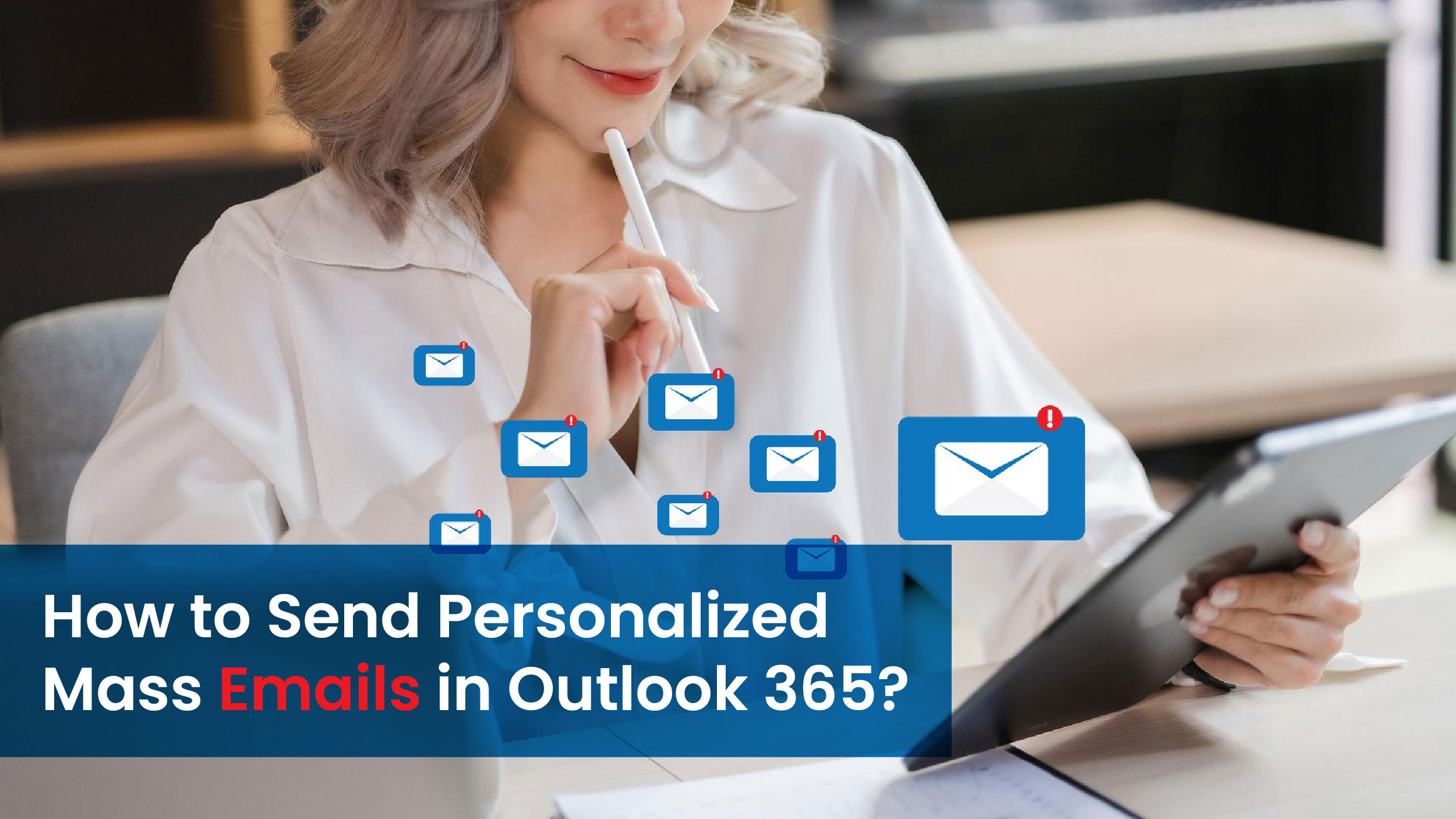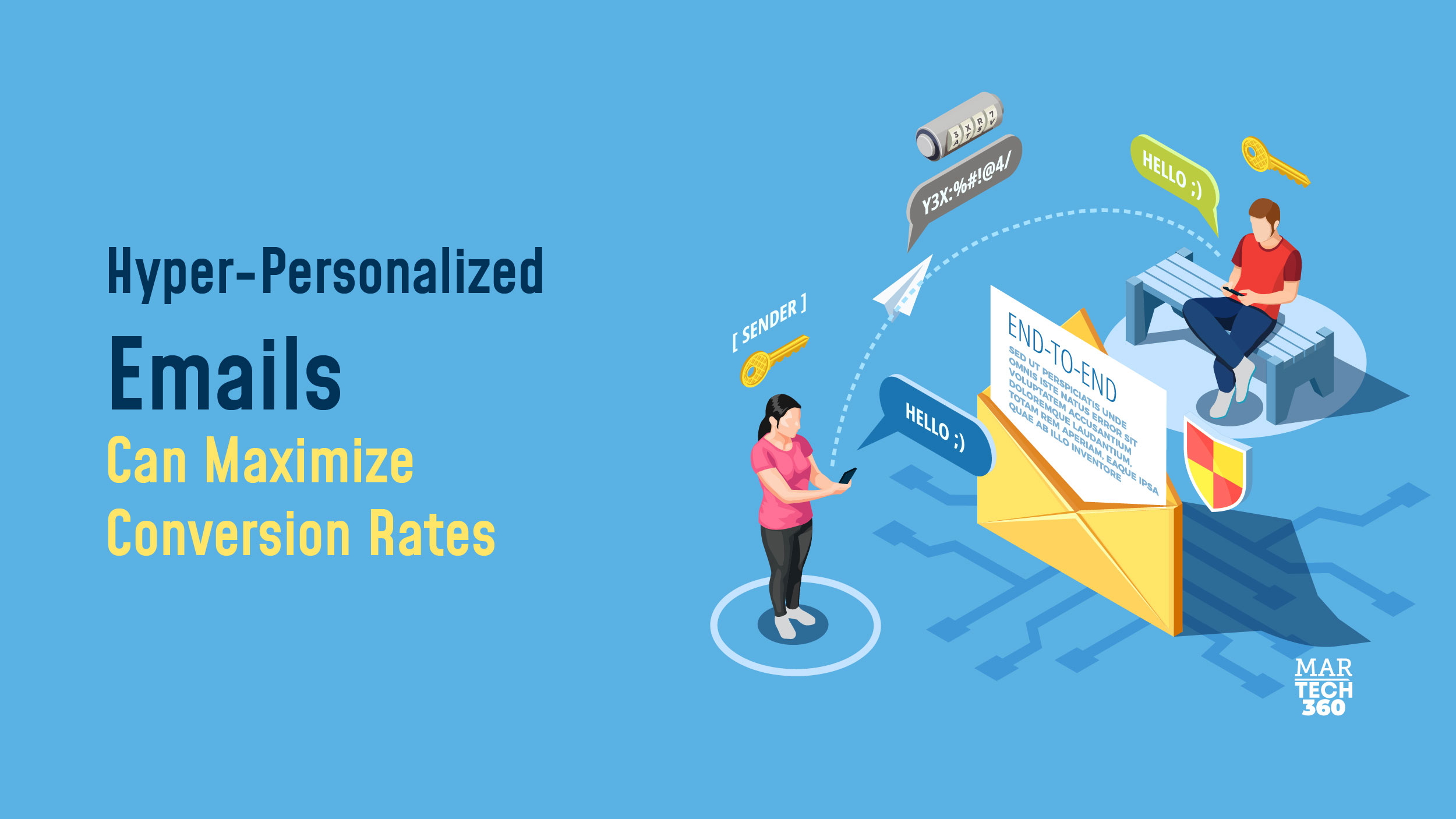Generating personalized emails makes a huge difference in any business’ revenues. As it increases the relevancy of the product and services, enhances customer experience, and improves engagement, it raises the conversion rates.
With advancements in marketing methods, email marketing gets better and better, from tailored emails to hyper-personalized emails. A new and more in-depth level of email personalization is achieved by using targeted email advertising to draw clients in and then making significant improvements when customization or personalization falls short.
Even though client needs are always evolving and changing in the digital era, they still value information that is relevant to them and specifically tailored to meet those needs. Hyper-personalized emails are all about creating an email campaign to each recipient’s unique demands on a very individual level.
What are Hyper-Personalized Emails?
Hyper-personalized emails refer to the technique of customizing an email campaign’s content, design, and parameters to each recipient’s specific needs and preferences. Utilizing consumer information, including purchase history, browsing habits, demographics, and preferences, it goes beyond standard personalization approaches to produce highly targeted and pertinent email communications.
Utilizing data-driven insights, hyper-personalization includes creating email content that specifically caters to the requirements, interests, and pain areas of the recipient. The recipient’s prior engagements with the brand may be used to dynamically insert customized recommendations, product suggestions, or pertinent offers.
Hyper-personalized emails are one step ahead of email personalization, which is based on the 3 important processes that include data acquisition, data analysis, and data application. Simply put, this process entails identifying customers who are seeking you, getting to know them, and contacting them personally.
The Magic Behind Hyper-Personalized Emails
 Hyper-personalized emails can be particularly helpful in marketing efforts since they let companies customize their communications to individual consumers depending on their interests, actions, and demographics. For a more customized experience, 83% of individuals are willing to share personal information. Here are some advantages of highly tailored emails.
Hyper-personalized emails can be particularly helpful in marketing efforts since they let companies customize their communications to individual consumers depending on their interests, actions, and demographics. For a more customized experience, 83% of individuals are willing to share personal information. Here are some advantages of highly tailored emails.
- Hyper-personalization can draw recipients’ attention and boost their engagement with the email by presenting highly relevant content. Email recipients are more likely to open, read, and interact with a message if they believe it is tailored just for them.
- Emails that are extremely customized show that the sender is aware of the recipient’s preferences and respects their uniqueness. This can enhance the relationship between the customer and the brand, build loyalty, and produce a pleasant customer experience.
- Hyper-personalization can lessen the probability that emails will be ignored or labeled as spam, as well as email weariness. It is more probable that receivers would interact with emails that are suited to their needs and interests, increasing email deliverability and enhancing the sender’s reputation.
How Can Hyper-Personalized Emails Drive More Conversions?
Hyper-personalized emails help you improve your messaging through customized ads or content because they delve deeply into the finer elements of customer behavior. Hyper-personalization in email marketing adds real-time data that is continuously changing as your customers take new actions related to your brand. It takes your efforts to the next level by going beyond the basic demographics and other general statistics.
It makes use of intelligent machines and technology allowing your marketers to engage customers with highly contextualized content. This is done by analyzing any data from any channel at numerous customer touchpoints. Hyper-personalization focuses on a customer’s browsing history, the device they use, etc. This is a huge contributing factor in driving email conversions as it adds a more human element to your content and simplifies building deeper relationships with prospects.
Basic email personalization strategies don’t have the same influence on email campaign performance as hyper-personalized email marketing. This is because the latter is specifically designed to provide users with targeted marketing, personalized, and relevant content experiences while the former lacks depth and context. Sending recurring updates about snow boots to a person living in Africa makes no sense but due to hyper-personalization, they won’t ever receive recurring updates about winter wear.
Basic email personalization strategies involve sending an email to a customer and using their first name in the subject line and it becomes a personalized email. However, hyper-personalized emails focus on that segment of customers that are already on a page of a certain product you sell and have stayed there for more than 15 minutes. It then groups them under one segment, and you can hyper-personalize their whole email experience.
You can also create personalized email templates for them based on their interests and provide suitable discounts. When customers get such deeply personalized content, potential customers convert into buying customers. Hyper-personalized emails are the right way to up your email marketing game and drive more conversions as new technologies and customer data are so readily available.
How to Send Personalized Mass Emails in Outlook 365?

Outlook is an effective tool for organizing email messages, calendars, contacts, and tasks because it has a variety of features and functionalities available. This tool makes things easy and cost-free to send bulk emails. Here is how you can send customized bulk emails in Outlook 365:
- Create a new email message.
- Click Start Mail Merge > Email Messages under the Mailings tab.
- Choose the list of email addresses you wish to send the email to from the Select Recipients dialog box.
- Click the Greeting Line in the Mail Merge box to open.
- Select the format you want to use for the greeting line in the Greeting Line dialog box.
- Click Insert Merge Fields in the Mail Merge pane.
- Select the fields that you want to personalize in the email message in the Insert Merge Field dialog box.
- To ensure that the customizable fields are properly shown, preview the email message.
- Select Send Email Messages > Finish & Merge.
Wrapping It Up
Emails that are highly customized will gain influence. Businesses will be able to create emails that are customized to the recipient’s unique interests and preferences using artificial intelligence. These emails will feel as though they were written especially for each recipient because of how personalized they are.
For instance, a personalized email service driven by AI may utilize a customer’s purchase history, online activity, and social media data to suggest goods or services that the user is likely to find interesting. The recipient’s location, the time of day, and other elements that can affect their interest in the email could also be taken into account when tailoring the email.
Hyper-personalized emails will be far more successful than conventional email marketing. Their open, click-through, and conversion rates will all be greater. Businesses that employ this tactic can expect to see an increase in sales and revenue.


Comments are closed.